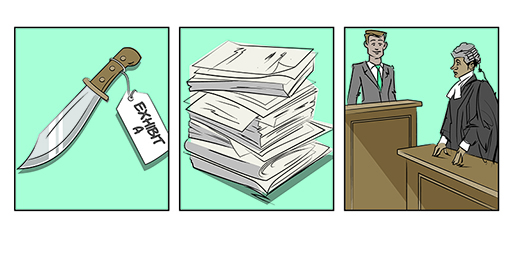2 Fact-finding
The first step in resolving a legal dispute is finding the facts. Correct fact-finding is vital to a just outcome. For example, if a court wrongly found that parents had mistreated their child when they had not, that child could be taken away, with terrible consequences. The process of working out from the evidence where the truth lies is generally known as fact-finding.
There are some instances when the opposing parties are agreed on the facts, but these are quite rare. Generally, one side makes claims that the other side disagrees with, so the court has first to decide where it thinks the truth lies. A legal dispute often comes to court some time after the dispute arises, and the fact-finder (also known as a ‘tribunal of fact’) has no previous information about the dispute, so they have to try to work out what happened from the evidence that is presented. In civil cases, the tribunal of fact is normally a judge or a panel of judges, but sometimes it can be a jury. In more serious criminal cases the tribunal of fact is generally a jury, and in less serious cases it is lay (unqualified volunteers) or professional magistrates.
Figure 1 demonstrates some of the forms that evidence might take.
The majority of fact-finding also takes place during the ‘first-instance’ stage, that is, when the case first comes to court and before any appeal. If a case is appealed, the appeal court rarely hears evidence, so the appeal court will tend to rely on the facts that were found by the first-instance fact-finder at the very start of the dispute.
As you shall also see further along in this course, fact-finding may be a point at which bias can creep into the legal process.

